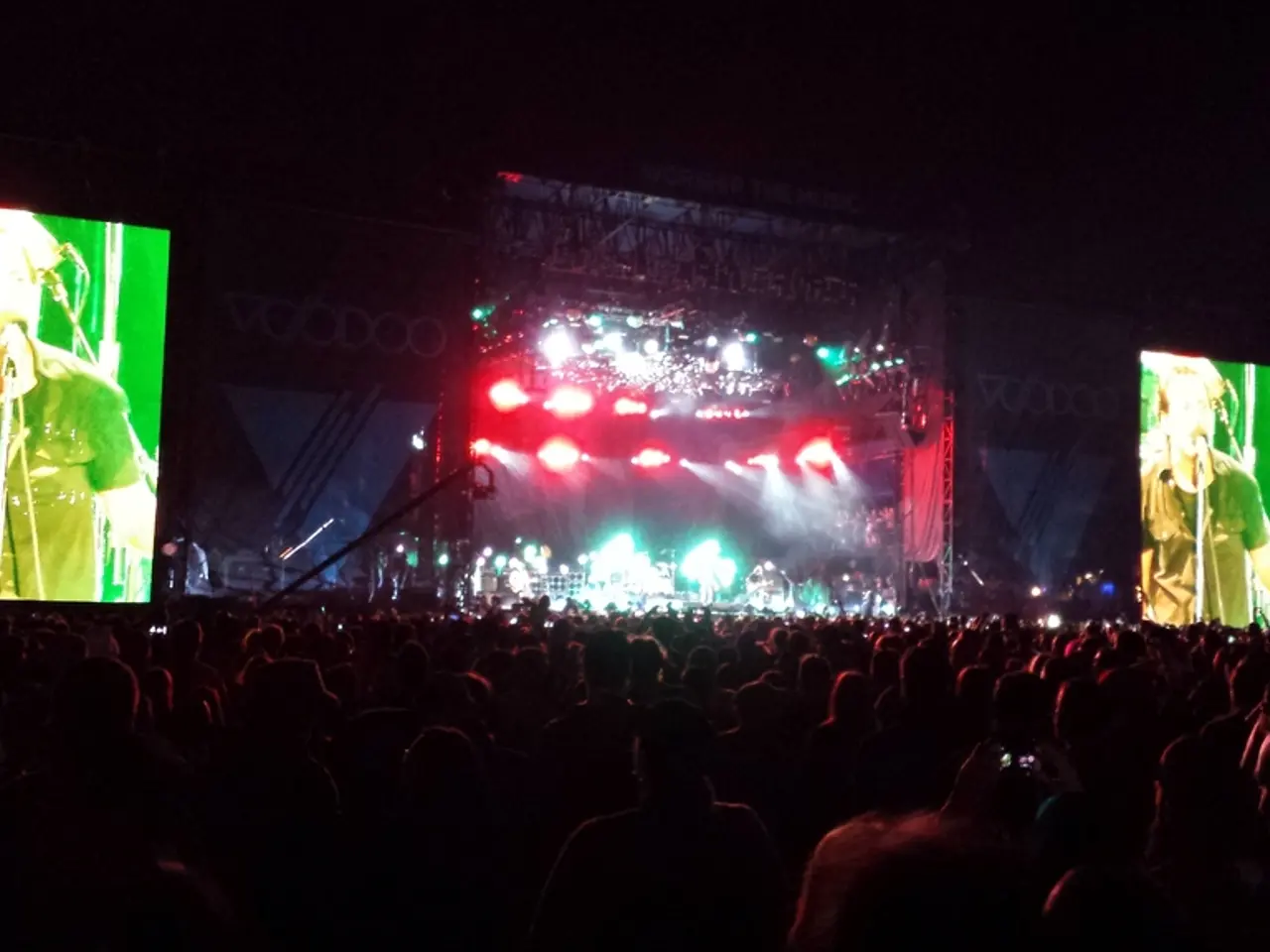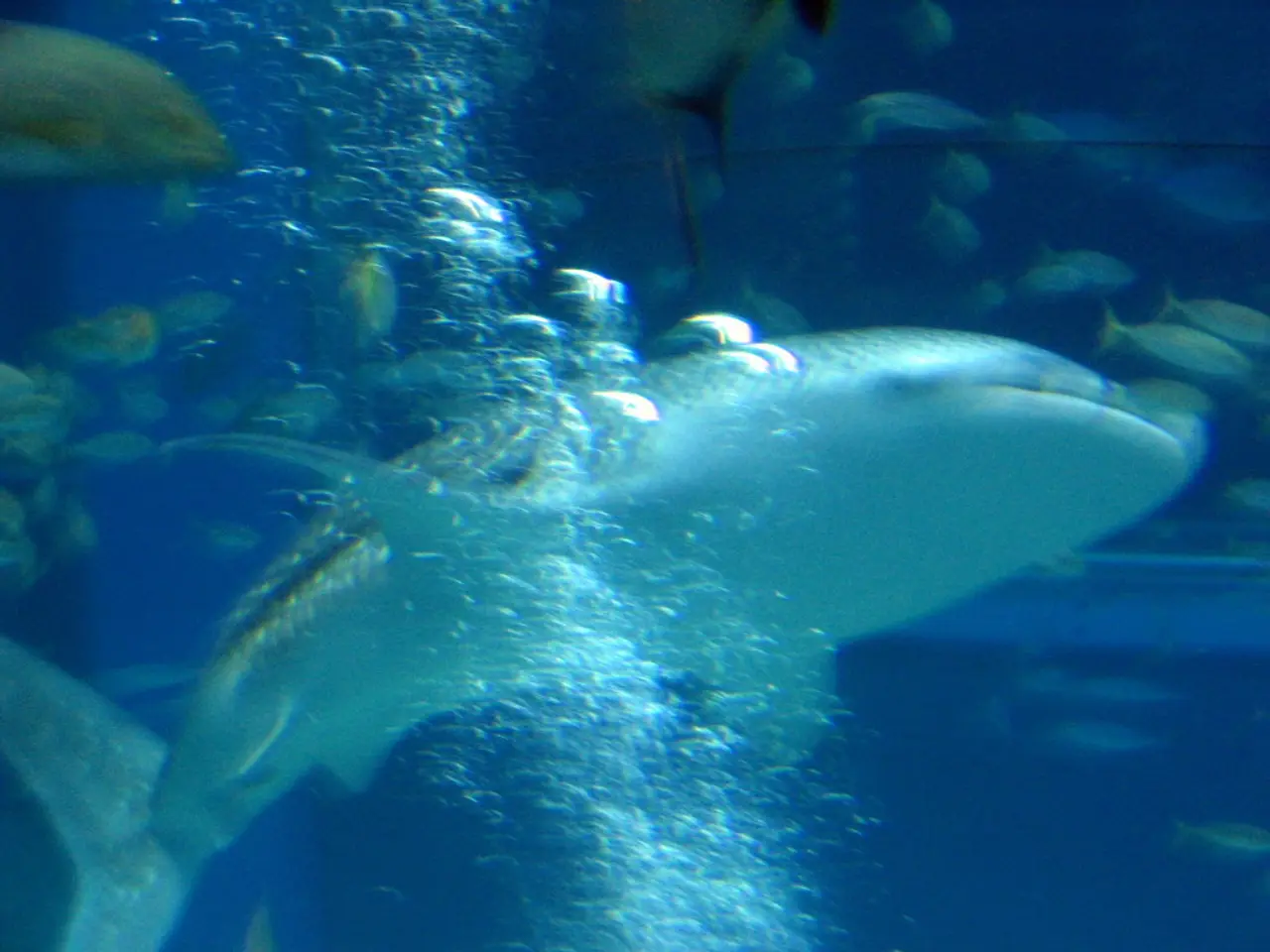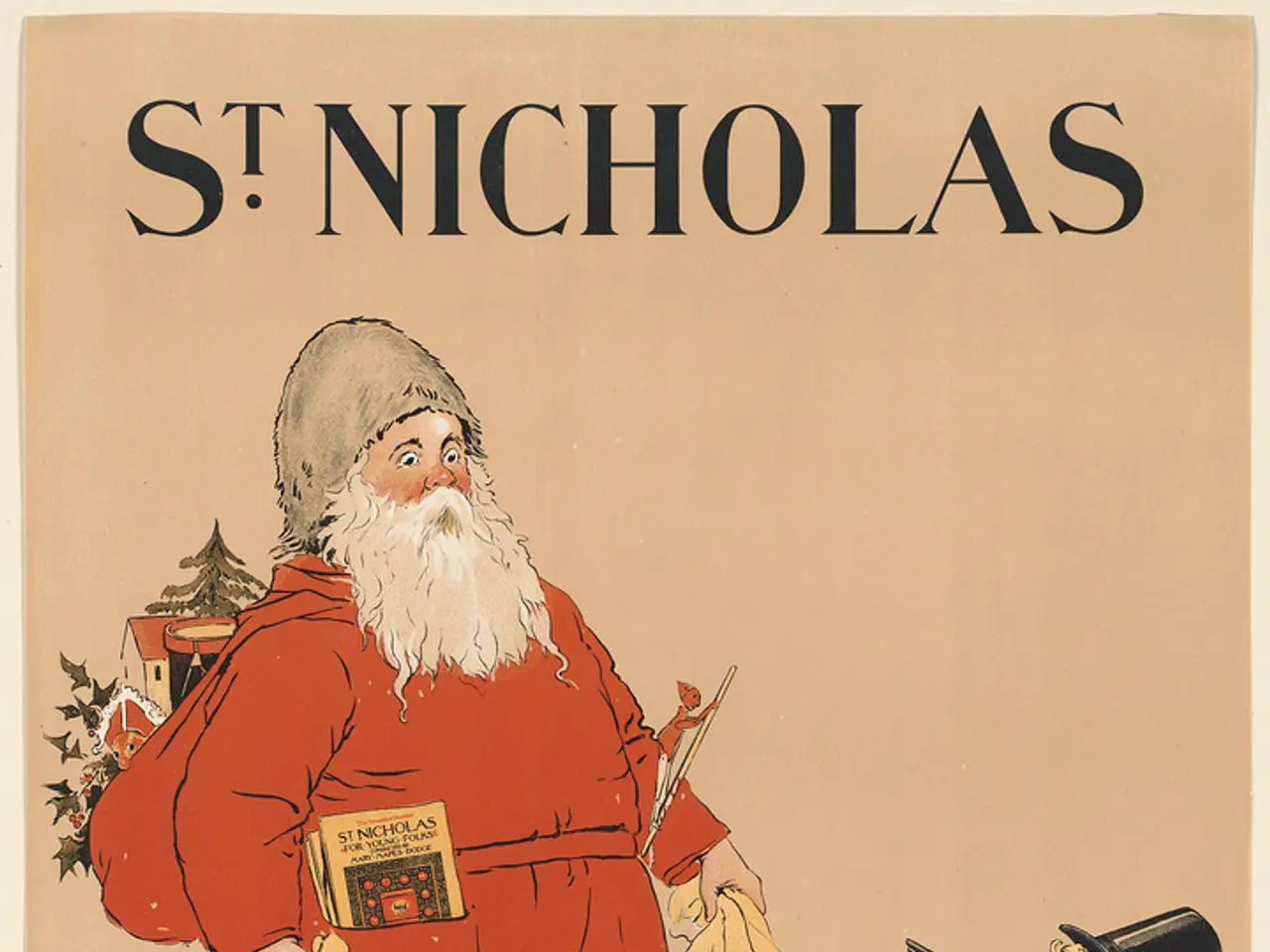Racing Authority Considering Changes to Preakness Stakes Schedule and Potential Triple Crown Restructuring Amid NBC's Simultaneous Broadcast Concerns
Relaxed Racing: The Shift Away from the Triple Crown's Tight Schedule
Just three days after Sovereignty's triumph at the Kentucky Derby, racers announced their plans to ditch the Preakness Stakes and instead set their sights on the Belmont Stakes on June 7. This move might boost Sovereignty's chances of clinching a win, but it also hinders this year's potential for a Triple Crown champion, along with the advertising goldmine that comes with the racing spectacle.
This "load management" approach has become prevalent in the contemporary horse racing scene. Owners and trainers are opting for a five to six-week breather between the high-profile races, leaving NBC – who holds rights to the Derby and the Preakness – in a bit of a pickle. (FX will broadcast the Belmont.)
Sovereignty's Derby win in 2023 drew 17.7 million viewers, the highest since 1989, with NBC hitting an impressive record peak audience of 21.8 million – a 8% improvement over the previous year.
A dearth of Triple Crown contenders usually takes a toll on the network, causing an approximate 2 million viewer decline. In the last two decades, only two Derby winners have skipped the Preakness, and the absence of considerable racing action sent ratings plummeting.
Country House didn't compete in the 2019 edition, and the audience count dropped to a mere 5.41 million viewers – a 32% drop compared to 2018 when Derby winner Justify brought in 7.94 million viewers for his Triple Crown endeavor.
In 2022, surprise Derby winner Rich Strike missed the Preakness, and viewership dropped to 5.3 million viewers for Early Voting's victory. This amount represented a 24% dip from the previous year when 7 million viewers tuned in to catch Medina Spirit finishing third – although Medina Spirit's win would later be nullified due to a banned substance.
Advertisers typically don't fret about the Preakness' floundering numbers, as the majority of the ad inventory is generally pre-sold before the Derby. Over the past three years, the Preakness and Belmont have had smaller ad impression pools compared to the mammoth 327 million impressions from the Kentucky Derby, with 131 million and 56 million impressions, respectively.
Clamor has arisen over the Preakness' scheduling, with some in the racing community advocating for a later date on the spring calendar. They argue that it would provide recouping horses more time for rest after the Derby. Plus, there's a TV ratings angle at play – a Triple Crown hopeful can make the Preakness intriguing to casual viewers, but only if the horse is in good shape to race.
Randy Moss, NBC Sports' longtime horse racing analyst, has been vocal about his concerns regarding the Triple Crown's declining prestige due to lack of rest between races. He stated, "Three races in five weeks was once not only acceptable, but trainers often gave horses a race between the Preakness and Belmont, and sometimes even between the Derby and Preakness. But trainers believe today's horses are not as robust and durable as the horses of yesteryear, and that a two-week turnaround is counterproductive to their health."
Sovereignty is certainly no match for the formidable Smarty Jones, 2004's Derby winner who obliterated the competition at the Preakness by a massive 11 1/2 lengths. That race at Pimlico Race Course in Baltimore claimed an audience of 11.6 million, and it remains the biggest Preakness audience in the last 25 years. Undefeated at the time, Smarty Jones came close to securing a Triple Crown, but ultimately fell just short at the Belmont. (American Pharoah claimed the crown in 2015, followed by Justify in 2018.)
Moss firmly believes that horse racing is in dire need of catering to today's competitive landscape, and in his view, extending the time between the Triple Crown races would rejuvenate the sport. "All businesses and sports that refuse to adapt to changing circumstances are doomed to fail. The solution for thoroughbred racing is fortunately a simple one: extend the time between the Triple Crown races," Moss espoused. "Three weeks won't be enough. Four or even five weeks between races is the answer. Then the Triple Crown can get back to what it once was: the best 3-year-olds squaring off in all three races."
Without Sovereignty, NBC is honing in on another timeless narrative for the Preakness – the rivalry between trainers Bob Baffert and D. Wayne Lukas. Baffert leads the Preakness wins pack with eight, while Lukas has seven under his belt. In celebration of the Preakness' 150th anniversary, the network has filmed a discussion among the trainers, Moss, and Hall of Fame jockey Jerry Bailey, exploring this storied rivalry and dynamic partnership.
NBC hopes that this illustrious rivalry fuels the allure of history as much as the horses do themselves.
## Take Note
The closer scheduling of the Preakness has had significant repercussions on the Triple Crown series, influencing ratings and advertising for horse racing events. Adjustments in training practices and racing strategies in modern horse racing have led to fewer top horses competing in all three events, weakening the prestige and difficulty of achieving the Triple Crown. The decline in ratings for the Preakness heightens concerns about the popularity and economic vitality of the race.
People who follow horse-racing closely are discussing the potential impact of the changed schedule for the Triple Crown races, particularly the decision to skip the Preakness Stakes. This shift might make it harder for a horse to achieve the Triple Crown, as the closer racing schedule has affected ratings and advertising for horse-racing events in the past. Sports advertisers usually sell most of their inventory before the Kentucky Derby, with fewer ad impressions for the Preakness and Belmont compared to the Derby.



![In a thrilling six-minute span, Chelsea severe\[d\] their opposition, Blitz-Red, with an...](/en/content/images/size/w1280/format/webp/20250623125448_club-world-cup-fc-chelsea-collapse-red-card-group-stage-flamengo-soccer-match.jpeg)



